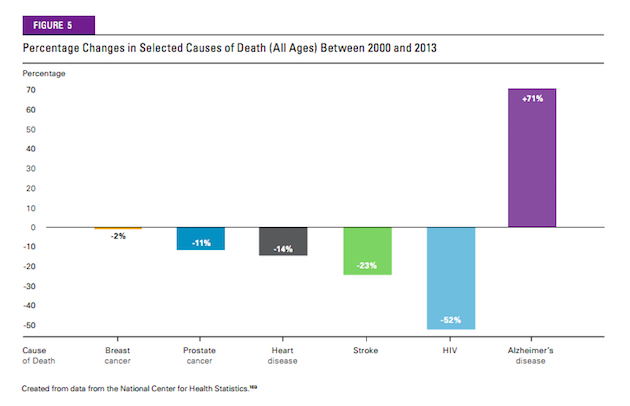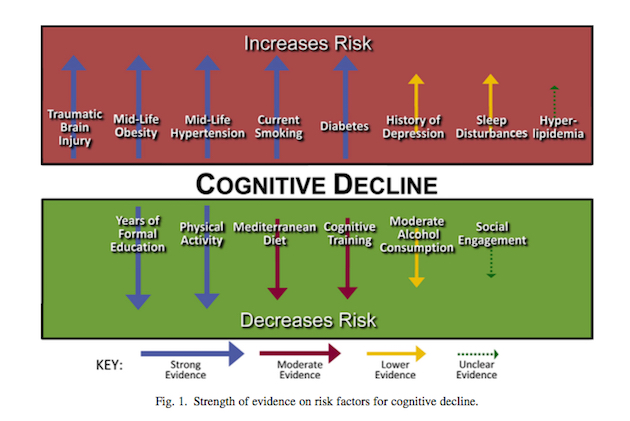
<a href="http://www.shutterstock.com/cat.mhtml?lang=en&language=en&ref_site=photo&search_source=search_form&version=llv1&anyorall=all&safesearch=1&use_local_boost=1&autocomplete_id=&search_tracking_id=VOohxcazQZPrtx1fTfL5TA&searchterm=head%20in%20hands%20middle%20aged&show_color_wheel=1&orient=&commercial_ok=&media_type=images&search_cat=&searchtermx=&photographer_name=&people_gender=&people_age=&people_ethnicity=&people_number=&color=&page=1&inline=150755834">d13</a>/Shutterstock
The good news from this new mortality study is that US cancer and cardiovascular death rates have dropped over the past quarter-century. The bad news is that death rates from neurological diseases like Alzheimer’s have soared—and Americans are much likelier to die from these diseases than their peers in most other developed countries.
To get their results, researchers from Bournemouth University in the United Kingdom looked at World Health Organization mortality statistics for 21 developed nations, comparing the 1989–91 period with the 2008–10 time frame.
For adults between the ages of 55 and 74, overall neurological death rates barely budged, rising 2 percent for men and 1 percent for women. But here in the United States, things got dramatically worse—death rates from dementia and other brain-related illnesses like Parkinson’s disease and motor neuron disease spiked, jumping 82 percent for men and 48 percent for women. American men and women in this age group now have the second-highest neurological death rates in the developed world, behind Finland. In the earlier period, they ranked 17th and 11th, respectively.
For the elderly (aged 75 and up), the situation is even more dire. Overall, the neuro-related death rate jumped 114 percent for men and 185 percent for women. Here in the United States, elderly death rates from neurological causes leapt more than twofold (368 percent) for men and more than fivefold (663 percent) for women. Neurological causes now kill more elderly American women than cancer does.
Over the same time frame, death rates from cancer and cardiovascular disease dropped, both in the developed world overall and in the United States in particular. For 55- to 74-year-olds, male cancer death rates fell 20 percent overall, and US rates dropped 36 percent. Women in that age group showed a 16 percent reduction in cancer deaths throughout the developed world and an 18 percent reduction in the United States. Similar trends held true for heart-related diseases.
When you look only at Alzheimer’s isolated from other neurological diseases, you’ll also see a relative spike in deaths, as this chart from a 2015 report by the US-based Alzheimer’s Association shows.

What gives? Why are so many Americans so much more at risking of dying of neurological diseases like Alzheimer’s, even as other threats recede? And in the developed world as a whole, why are neurological-related death rates rising for people over the age of 75?
One obvious factor is that medical science has come up with all sorts of treatments to prolong the lives of people with cancer and cardiovascular conditions, while treatments for Alzheimer’s have proven elusive. It could be simply that Alzheimer’s and other neurological diseases are “diseases of the elderly”—that our brains are doomed to decline past a certain age, and more and more people are surviving cancer and heart disease only to “develop diseases that they would not have lived long enough to have acquired in previous times,” as the authors of the UK study put it. But that probably doesn’t fully explain the findings, particularly since some countries, like the United States, have fared so much worse than others.
The study’s authors don’t speculate much on what’s driving the trends they identified; they suggest that lifestyle factors might play a role. Heather Snyder, director of medical and scientific relations at the Alzheimer’s Association, told me that there are significant but still-inconclusive links between cognitive decline and diet-related maladies like obesity and diabetes. A 2015 paper she co-authored delivers a broad state-of-the-science view on the relationship. Here’s a summary.

Indeed, there’s mounting evidence that high-sugar diets contribute to cognitive decline, a trend I wrote about here. There’s also compelling evidence that air pollution might be a trigger of neurodegenerative diseases, as Aaron Reuben’s recent Mother Jones blockbuster shows.
















